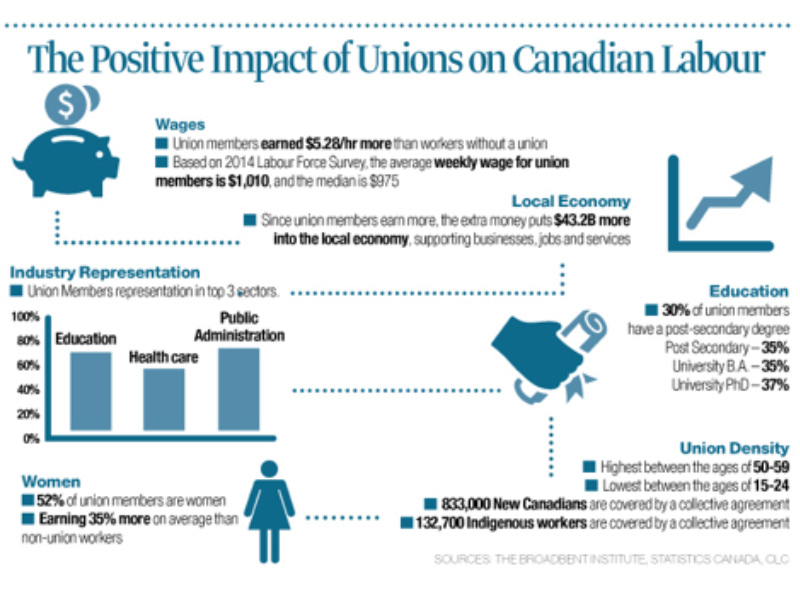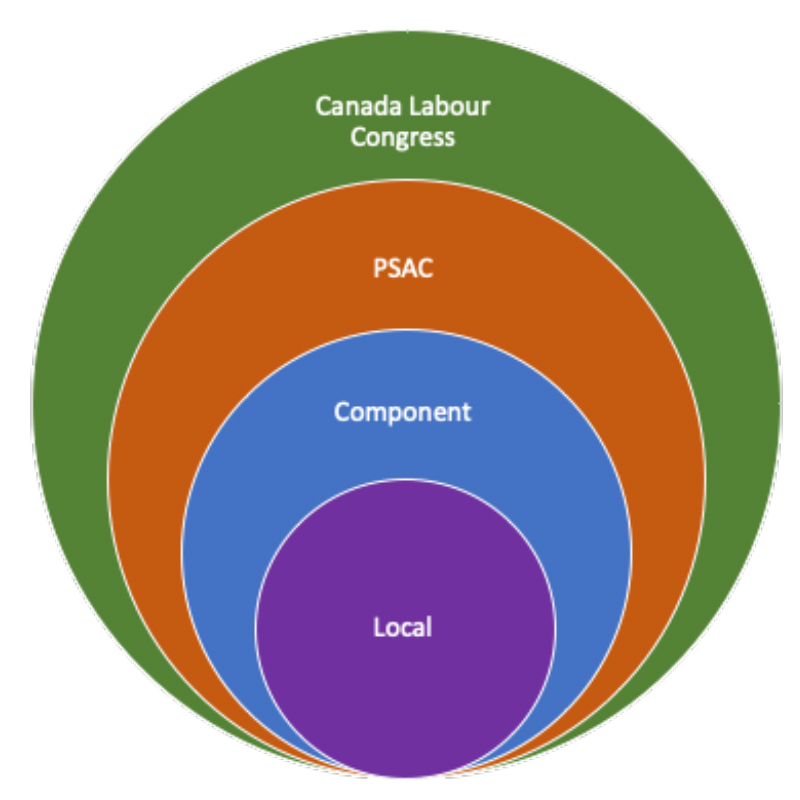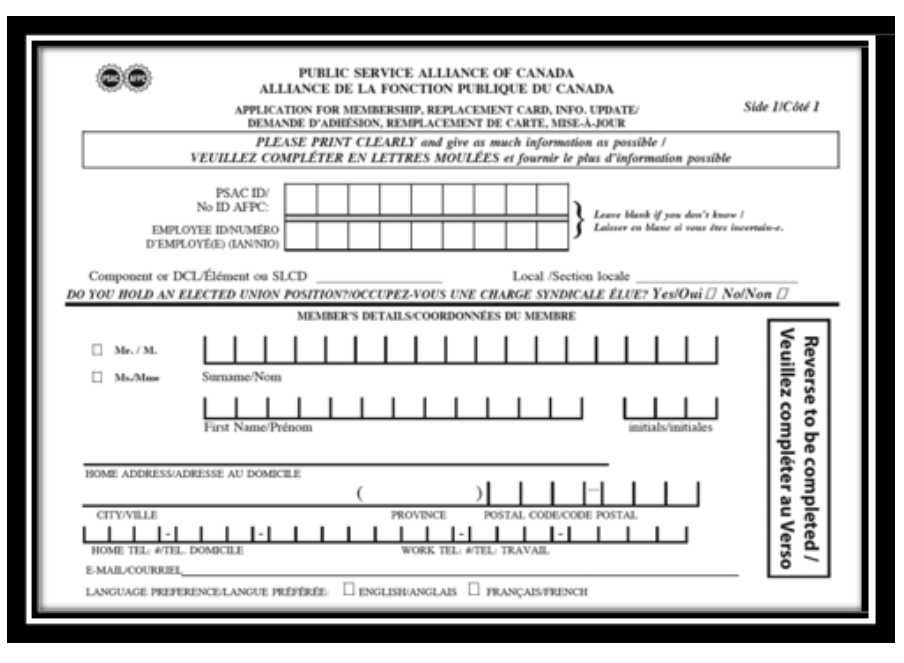Welcome to the “House of Labour”.
You are a part of a nation-wide movement of labour Unions who have come together in the spirit of mutual cooperation and support to protect the rights of workers.
The house of labour begins with the local. This is the front line in Union organizing and political action. The local handles all matters relating to the operations of the individual offices, including filing grievances. The local is represented at the National Level by delegates to the National Convention, who in turn elect Regional Vice Presidents and other National Officers.
Your local is part of a component, UVAE. The component manages the national issues facing our department and employees. UVAE handles all second and third level grievances, as well as complex issues requiring resources unavailable to locals. The component is represented in the Public Service Alliance of Canada by the National President, who sits of the National Board of Directors.
Your component in part of the Public Service Alliance of Canada. The PSAC is our “bargaining agent”; they represent all the Component employees at the bargaining table. PSAC also handles any Federal Public Sector Labour Relations Board matters. The PSAC is represented at the Canadian Labour Congress by the National President.
The Canadian Labour Congress is the top level of the House of Labour. The CLC is responsible for organizing and operating national multi-union lobbying and political action.

Your union card
By being employed at a workplace that is unionized, you already receive many of the benefits negotiated by our union over the years such as paid leave, working conditions, etc. The RAND formula, provides a form of union security whereby an employer automatically deducts a portion of the salary of each employee. This portion goes to the union as union dues. The RAND formula is also known as ‘automatic checkoff’. It is based on the principle that all members have equal access to their collective agreement benefits, so should contribute equally as well.

However, to formally join PSAC as a full member, you need to sign a union card (pictured below). By signing this card, you are able to enjoy even more benefits such as attending conferences and conventions, participating in educational courses, voting and running in Local elections, etc. Contact your Local Executive to sign a union card.

Why do I need to sign a Union Card?
Those who sign their cards are considered Members in Good Standing:
Members who sign a union card become members of the bargaining unit and can take part in all union activities, receive funding from the Union for education and political action activities, and hold elected office.
Those who do not are considered to be Rand members:
Employees who are part of the bargaining unit and have not (yet) signed their union cards are not (yet) members of the union. The Rand Formula is named after a decision handed down on January 29, 1946, by Mr. Justice Ivan Rand of the Supreme Court of Canada while he was arbitrating the Windsor Strike (September 12 to December 20, 1945). It provides a form of union security whereby an employer deducts a portion of the salaries of all employees within a bargaining unit, union members or not, to go to the union as union dues (“checkoff”). (All workers in a given workplace were required to pay dues on the basis that all workers benefit from the working conditions negotiated by the union for that workplace.) The original formula was based on the assumption that the union is essential for all workers and must be responsible for them.
Rand deductees do have a right to be represented by the union and enjoy all of the benefits of the collective agreement. However, Rand deductees cannot:
- Participate in ratification votes on negotiated contracts (except for strike or ratification votes on final offers ordered by the Board – where Rand deductees legally have voting rights)
- Run for a union position
- Have a voice on union matters or participate in the decision-making process pertaining to union matters.
Would-be members simply must complete a membership card to become members in good standing of the union. There is no benefit to being a Rand member; either way you are paying Union dues, signing the card takes 2 minutes and comes with a lifetime of benefits, such as those listed on the following pages.
Contract negotiations
PSAC has more than 230 bargaining units, each with its own collective agreement that deals with its specific working conditions. When a new group of workers unionize with PSAC, they either form a new bargaining unit, or join an existing one. Bargaining units can be as small as 10 members or as large as 70,000 members.
PSAC’s bargaining teams include members elected by members, and a PSAC negotiator. The team receives support in the form of: research, mobilization, legal and other bargaining support from PSAC staff. Our union has over 50 years of experience in negotiating collective agreements that meet members’ needs in a wide variety of jobs and locations. Bargaining teams negotiate, but collective agreements only come into force once ratified (voted upon) by the Local membership.
Collective bargaining
Your collective agreement protects you in your workplace. It outlines your rights and responsibilities and lays out the rules for your working conditions; for example, hours of work and overtime, vacation, leave, and pay and benefits. It also defines the employer’s responsibilities. The collective agreement reflects a history of what members have demanded and won at the bargaining table. Member participation is key to PSAC’s success in negotiations, grievances, pay equity, or any other union activity. We all must work together in solidarity to achieve the best outcome for all members. Activism can take many forms and it’s an exciting way to participate in your union and our labour movement as a whole. PSAC collective action creates the necessary collective power to reach good agreements.
